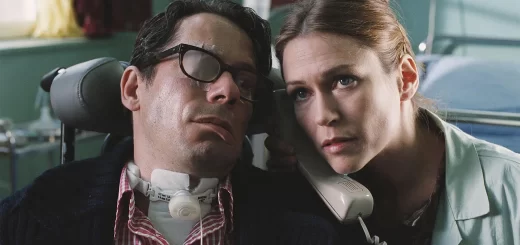Suzanna Andler: A Hopeless Tangle, by David Bax

Without a doubt, the coolest thing in Benoît Jacquot’s Suzanna Andler, after Charlotte Gainsbourg, is the quality of the light. I mean that literally. Despite its late spring/early summer setting, the sunshine looks downright cold. Gainsbourg, even with her slight frame lost in a big heavy coat, looks like she’s freezing.
And then there’s the score. Plaintive woodwinds wail, underscoring Suzanna’s loneliness. But eventually the score seems to disappear and, with it, any sense of feeling or forward momentum.
You’d probably be able to guess as much just by watching but Suzanna Andler is based on a play (the original material is by Marguerite Duras; Jacquot himself is credited with the adaptation). Taking place almost entirely in the empty, expansive living room of an expensive vacation house on the Riviera and its adjoining veranda, the main update in the translation to film seems to be that everyone’s allowed to whisper all of their dialogue.
Suzanna trades these hushed lines mostly with her lover (Niels Schneider)–whom she intends to leave more out of boredom and depression than anything else–and occasionally with a friend (Julia Roy). So Suzanna Andler consists almost entirely of well-dressed, beautiful people staring out at the sea and talking about existential angst, as if Jacquot set out to confirm all the worst, most unfair stereotypes about French cinema.
This is the second bad Jacquot film to land on American shores this year, after Casanova, Last Love, and, though he’s always worked at a prolific clip, Suzanna Andler make it seem like he might be tired. He’s always been at his best when he keeps things moving, either literally–as in A Single Girl or Farewell, My Queen, both of which can barely keep up with the hectic lives of their heroines–or in terms of plotting, as with 2014’s superheated melodrama 3 Hearts. Here, he decelerates to a laughably weighed-down pace in an apparent attempt to imbue portent. But it’s the films with a sense of fun that are his most vital.
Tempting as it may be to do so, especially in our time of unprecedented income inequality, it is foolish to dismiss people’s emotional and psychological struggles just because they are wealthy. But Suzanna Andler leaves us with nothing to chew on but to think, “Poor little rich girl.”


























